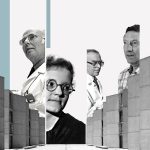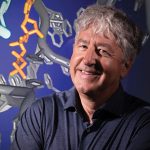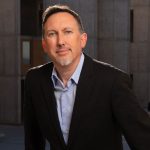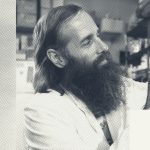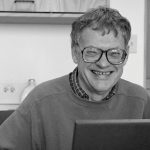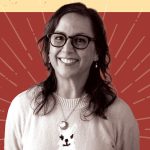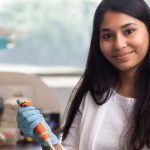Postdoctoral Researcher Payel Mondal grew up in the metropolitan city of Kolkata, India, where she learned to speak Bengali, Hindi, and English fluently. Her family would take regular trips to the Indian Museum to gaze at enormous dinosaur skeletons and ancient fossils. In the winter, they would venture to the annual flower shows, where Mondal enjoyed learning the scientific names of the rare orchids, cacti, and other flowering plants.
From a young age, Mondal’s mind was captivated by the beauty and elegance of the natural world.
Although her parents were not scientists, she fell in love with biochemistry during high school. Her school had a small chemistry lab where she mixed common ingredients together to create bright colors and fumes. But to pursue science in India, she needed more than curiosity and passion—she also needed to perform well on the standardized tests.
Mondal enlisted the help of a tutor and worked tirelessly to prepare for the highly competitive exams. She was elated to learn that she had scored well and was admitted to the prestigious Indian Institute of Technology in Kharagpur to study biotechnology.
“During my degree, I realized that a PhD offered the most opportunities in science,” says Mondal. “So, I started looking at schools that had strong programs in biochemistry and molecular biology.”
The University of Illinois Urbana-Champaign stood out to her, and, upon graduating from the Indian Institute of Technology, Mondal gave up the temperate climate of India for snow in a country she had never stepped foot in before. Although she initially studied chromosome biology, she soon switched to focusing on optogenetics, a technique that uses light-sensitive proteins to control cellular activity. “Optogenetics is a relatively simple technique with complex applications,” says Mondal. “I was excited by how I could use optogenetics to better understand cell signaling pathways.”
When her husband moved to Purdue University, she followed and completed her first postdoctoral fellowship, studying enzymes called phosphatases involved in cancer. But she dreamed of conducting science at the Salk Institute and was thrilled to join Assistant Professor Christina Towers’ lab to study the mechanisms involved in cancer progression for her second postdoctoral fellowship.
“The level of collaboration at Salk is high compared to other institutions, and Christie is such an amazing mentor,” says Mondal. “Her lab felt like a place where I could thrive, and her research is an area I was excited to explore.”
In the Towers lab, Mondal wants to learn more about why some patients respond well to cancer therapeutics at first, but then relapse. Some cancers can recycle their own nutrients and power-generating structures, called mitochondria, to evade cancer drugs. This recycling process is called autophagy, and Mondal aims to uncover new autophagy biomarkers that can spur the development of more-effective cancer treatments.
“I am passionate about cancer research because there is a strong correlation between research and application,” says Mondal. “The projects we’re working on in the lab will likely be translated into therapeutics to help people someday. That prospect really excites me.”
Since joining Salk in 2020, Mondal has received two Institute awards. She was recognized with the Salk Women & Science Research Award, which helps fund early-career scientists’ innovative research proposals, as well as the Pioneer Fund Postdoctoral Scholar Award, which provides $75,000 in funding to young scientists. “Salk is unique in that it has so many awards for young scientists,” says Mondal. “It keeps us excited and makes our work more visible.”
Outside of science, Mondal loves to travel to tropical areas and visits Hawaii whenever she can. The Big Island and Maui are two of her favorite spots, but you won’t see her reading a romance novel on the beach anytime soon. Instead, Mondal prefers soaking in everything she can about financial stability, investing, and retirement saving. “I enjoy strategizing about my personal financial goals,” chuckles Mondal. “I am now much more aware of how I can plan for my financial future.”
After Salk she hopes to join a local biotechnology company, where she can run her own research group in cancer therapeutics. “I want to see something I work on help cancer patients in my lifetime. That is my goal,” says Mondal.






















































